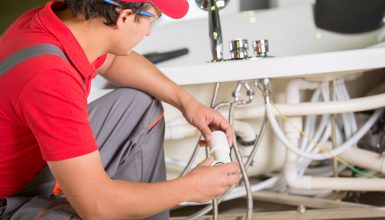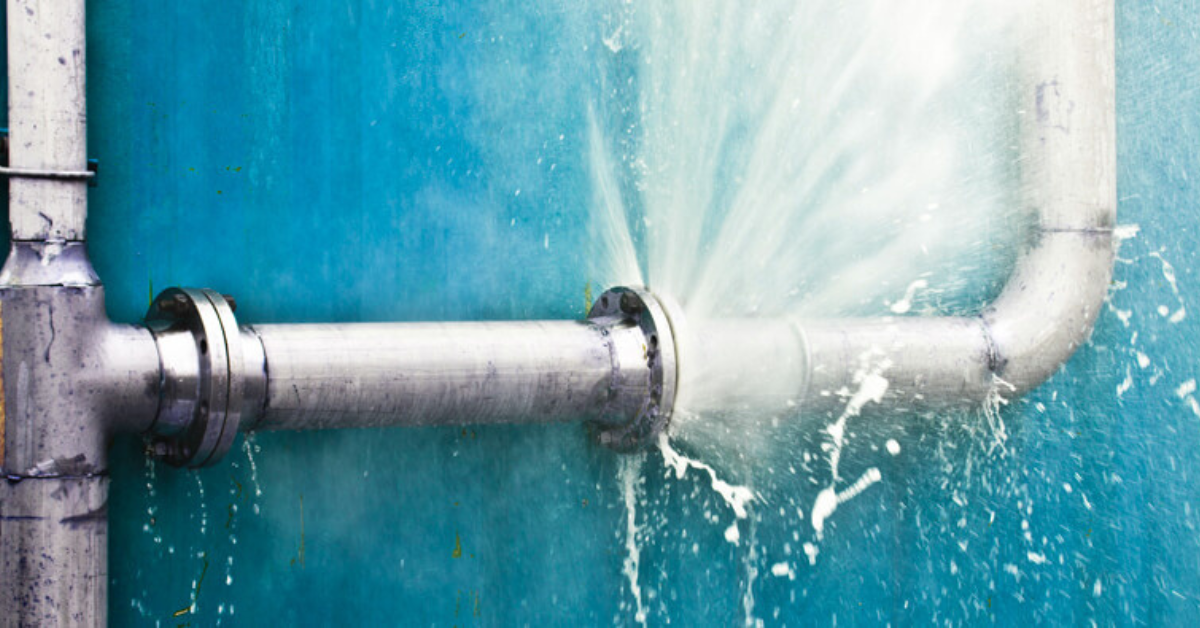Just how do you feel when it comes to 9 Reasons for Low Water Pressure in Your House?

Low water pressure in your house can be an irritating problem, influencing whatever from showering to washing recipes. If you're experiencing weak water flow, there are several feasible causes and services to check out. In this overview, we'll talk about typical reasons for low tide pressure and practical actions to attend to the issue successfully.
Introduction to Low Tide Pressure
Low tide pressure takes place when the flow of water from your faucets, showers, and other fixtures is weaker than usual. This can make day-to-day jobs more difficult and less effective. Recognizing the root causes of low water pressure is vital to finding the best option.
Typical Reasons For Low Tide Pressure
Pipeline Obstructions
Over time, pipes can become clogged with natural resource, debris, or debris, restricting the circulation of water. This is an usual issue in older homes with galvanized steel pipes.
Deterioration
Corrosion within pipes can result in leaks and reduced water pressure. Corrosion accumulation can tighten water flow, specifically in aging plumbing systems.
Faulty Pressure Regulatory Authorities
Pressure regulatory authorities are responsible for maintaining consistent water pressure in your home. If they malfunction, it can cause low water pressure or unequal flow throughout the house.
Local Water Supply Issues
Sometimes, the trouble exists outside your home. Local water supply concerns, such as main line leakages or maintenance job, can temporarily reduce water pressure in your location.
Just How to Identify Low Water Pressure
Inspecting Taps and Components
Begin by examining the water pressure at different faucets and components throughout your home. If the concern is separated to certain areas, it may indicate localized problems.
Inspecting Pipes
Inspect noticeable pipelines for indicators of leaks, deterioration, or clogs. Focus on any type of unusual noises, such as banging or rattling pipes, which might show concerns within the plumbing system.
Consulting with a Plumber
If you're incapable to pinpoint the cause of low tide stress, take into consideration employing a specialist plumber to perform a comprehensive inspection. They can determine underlying problems and recommend ideal remedies.
Do It Yourself Solutions to Fix Low Water Stress
Cleaning Aerators and Showerheads
Mineral deposits can collect in aerators and showerheads, reducing water circulation. Eliminate and clean up these elements regularly to improve water pressure.
Flushing Hot Water Heater
Sediment buildup in the hot water heater can restrict flow and lower efficiency. Purging the tank occasionally assists remove debris and keep optimal performance.
Checking Stress Regulatory Authority
Make certain that the pressure regulator is operating correctly. Readjusting or changing the regulator can assist restore appropriate water pressure throughout your home.
Clearing Up Clogs in Pipeline
For minor blockages, try utilizing a plumbing snake or chemical drain cleaner to clear blockages in pipelines. Be cautious when making use of chemicals and follow safety and security standards.
When to Call a Specialist Plumber
If do it yourself efforts fall short to solve the problem or if you believe significant plumbing troubles, it's best to seek help from a licensed plumber. They have the expertise and devices to address intricate concerns safely and successfully.
Safety Nets to Preserve Water Pressure
Regular Maintenance
Arrange regular maintenance for your plumbing system to prevent concerns such as rust, leaks, and blockages. Addressing minor issues early can help avoid more significant repair work in the future.
Installing a Pressure Booster
Take into consideration setting up a stress booster pump to improve water stress in locations with constantly reduced circulation. This can be especially advantageous for multi-story homes or residential or commercial properties with high-demand fixtures.
Surveillance Water Usage
Bear in mind water usage habits and avoid ill-using the plumbing system. Simple adjustments, such as shocking showers and washing loads, can assist maintain appropriate water stress.
Verdict
Taking care of low water pressure can be irritating, yet determining the underlying causes and carrying out proper solutions can restore optimal circulation throughout your home. Whether it's cleaning aerators, checking pipelines, or consulting with a plumber, taking aggressive actions can guarantee a constant supply of water for your daily requirements.
FOUR WAYS TO FIX LOW WATER PRESSURE NOW
Turning on a shower or faucet only to find the water comes out in a sad, slow drizzle is never a good feeling. How exactly are you supposed to wash a pan or take a quick shower when it takes 10 minutes just to rinse off a little soap? The good news is that when your water pressure is bad, there's always a cause: typically one that can be easily fixed. Here are some of the most common causes of low pressure and what you can do to fix the issue:
DEBRIS AND MINERAL DEPOSIT BUILDUPS
If you notice low water pressure from just one or two of the fixtures in your house, the problem likely has to do with debris buildup. Water is full of minerals and other debris, all of which can accumulate in your pipes and on your fixtures. This can cause a blockage that affects how much water flows through. To fix this, try filling a small plastic bag with white vinegar, and use a rubber band to hang it around your showerhead or faucet. Let the head of the fixture soak for a few hours, and the vinegar should loosen the deposits.
WATER LEAKS
Leaks are another common cause of low water pressure. If water is flowing out of your plumbing through a hole or crack before it can reach your fixture, the pressure coming out of the faucet or showerhead will be lower. A plumbing professional is your best bet for finding and repairing a leak in your water supply pipes.
Leaks are another common cause of low water pressure. If water is flowing out of your plumbing through a hole or crack before it can reach your fixture, the pressure coming out of the faucet or showerhead will be lower. A plumbing professional is your best bet for finding and repairing a leak in your water supply pipes.
FOUR WAYS TO FIX LOW WATER PRESSURE NOW
Turning on a shower or faucet only to find the water comes out in a sad, slow drizzle is never a good feeling. How exactly are you supposed to wash a pan or take a quick shower when it takes 10 minutes just to rinse off a little soap? The good news is that when your water pressure is bad, there's always a cause: typically one that can be easily fixed. Here are some of the most common causes of low pressure and what you can do to fix the issue:
DEBRIS AND MINERAL DEPOSIT BUILDUPS
If you notice low water pressure from just one or two of the fixtures in your house, the problem likely has to do with debris buildup. Water is full of minerals and other debris, all of which can accumulate in your pipes and on your fixtures. This can cause a blockage that affects how much water flows through. To fix this, try filling a small plastic bag with white vinegar, and use a rubber band to hang it around your showerhead or faucet. Let the head of the fixture soak for a few hours, and the vinegar should loosen the deposits.
WATER LEAKS
Leaks are another common cause of low water pressure. If water is flowing out of your plumbing through a hole or crack before it can reach your fixture, the pressure coming out of the faucet or showerhead will be lower. A plumbing professional is your best bet for finding and repairing a leak in your water supply pipes.
Leaks are another common cause of low water pressure. If water is flowing out of your plumbing through a hole or crack before it can reach your fixture, the pressure coming out of the faucet or showerhead will be lower. A plumbing professional is your best bet for finding and repairing a leak in your water supply pipes.
A VALVE ISSUE
If you have low water pressure throughout your home, check your main shut-off valve to make sure it's completely open. You may also want to see if there's a pressure-reducing valve installed. If there is, have a plumber help you adjust the settings to get the pressure you're looking for.
OTHERS USING WATER
Believe it or not, your low water pressure could be caused by your neighbors. If you notice low pressure at certain times of day, it may be because you and the people living next to you have similar schedules - when everyone is showering at the same time, the pressure will be lower in every home. Low pressure throughout the neighborhood may also be caused by an issue with your municipal water supply. If that's the case, call the supplier to see if they're working on the issue.
https://www.rotorooter.com/blog/water-leaking/low-water-pressure-fixes/

As an enthusiastic reader about Low Water Pressure in the House?, I was thinking sharing that editorial was sensible. Enjoyed reading our piece of writing? Please quickly share it. Let somebody else discover it. Thanks a bunch for your time. Revisit us soon.
Get An Estimate